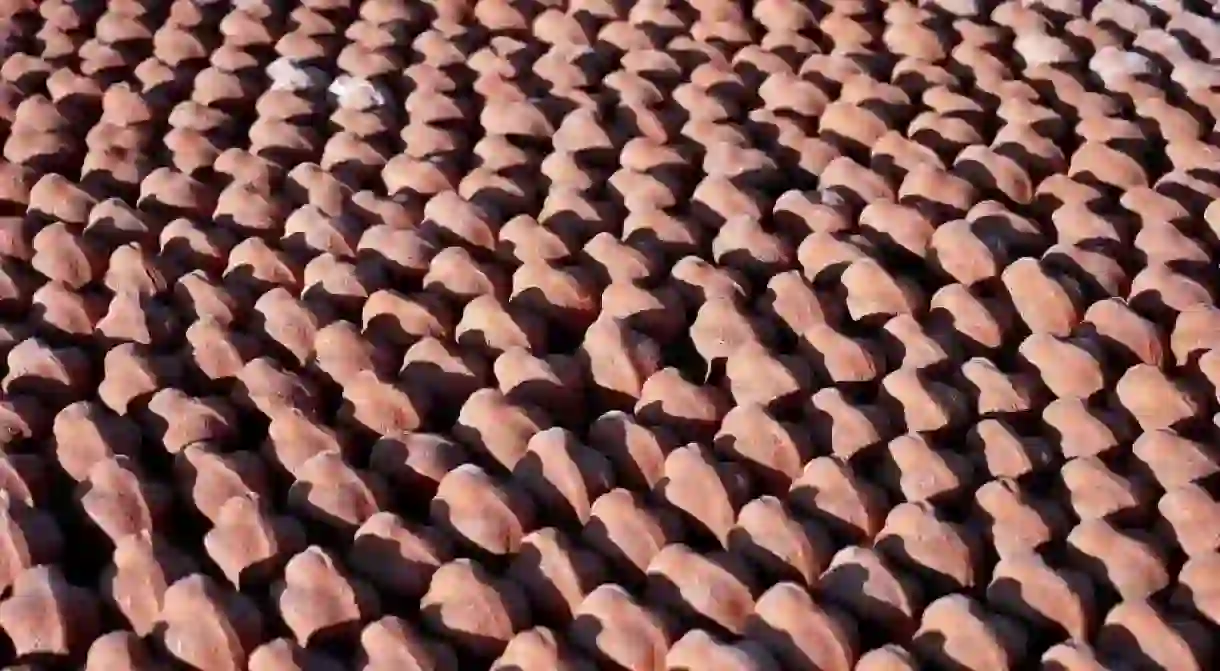Remembering World War I In Ypres With 600,000 Clay Sculptures

This year marks the centenary of the end of the First World War. Ypres Salient, an area around the Belgian city of Ypres (Ieper in Dutch), was the centre of five important battles between German and Allied forces. The city is commemorating the soldiers who died in those battles with a project called Coming World Remember Me, which features no less than 600,000 small clay figures.
Of the five battles that took place in Ypres, the largest, best known, and most costly in terms of human suffering was the Third Battle of Ypres. It took place from July 31 to November 10, 1917 and is also known as the Battle of Passchendaele. After months of fighting, this battle resulted in nearly half a million casualties to all sides. The Allied forces (Belgian, French, British and Canadian soldiers) won, but gained only a few miles of ground. Because of all the fighting, Ypres was all but obliterated by artillery fire during the course of the war.
Today, Ypres is still an important place of remembrance for the First World War. There are many monuments and museums and dozens of military graveyards in and around the city. Every night since 1927, the local fire brigade sounds ‘the Last Post’ from under the Menin Gate memorial in tribute to the fallen soldiers. The In Flanders Fields museum attracts around 300,000 visitors per year.

To commemorate the centenary of the Great War, Coming World Remember Me was started in 2014. Coming World Remember Me is a four-year project revolving around two large works of art by Belgian artist Koen Vanmechelen, with 600,000 small clay statues standing in between – one for each of the victims of the First World War in Belgium.
The clay used to make the figures contains a mixture of Belgian and German soil. From April 2018, this installation will cover no-man’s land and the Bluff, one of the most heavily contested areas during the Great War. The total area of the installation is three hectares.
The initial idea was to let tourists, school children and others visiting the site create their own clay statue at a cost of five euros. But when back in January 2017 only 80,000 sculptures had been made, the organisation decided to outsource the production of the sculptures to various local sheltered workshops. At the start of 2018 all 600,000 sculptures had been made.

In addition to wandering around the art installation itself, there is also a walk visitors can do around the site. Along the way there are various rest points where guests can listen to war poetry. At the end of the footpath is a viewing platform that offers a bird’s eye view of the art installation.
Aside from the 600,000 clay figures, the names of each of the victims of World War I in Belgium were also engraved on dog tags. These 600,000 dog tags are put on display in a transparent work of art in a pavilion at the start of the walk.

The art installation will be open to the public until November 11, 2018. Once the display period is over, the organisers of Coming World Remember Me will ensure that the clay figures are removed in a respectful manner. At the end of 2018, the makers of the statues will be given the opportunity to come and collect a statue from the art work. As far as the remaining uncollected statues are concerned, the organisers will try and find museum-related uses for them at different locations, both in Belgium and abroad.













